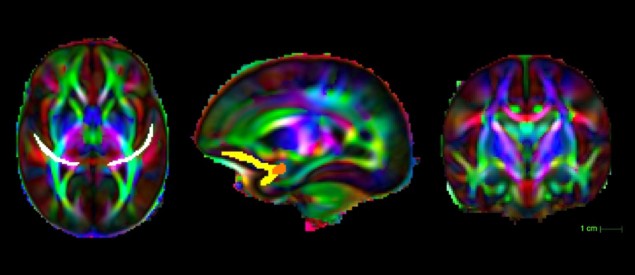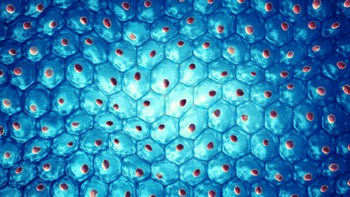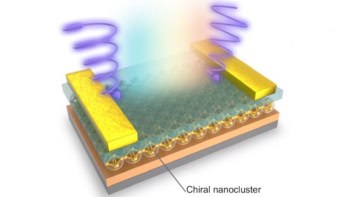
An international research team has shown, for the first time, that music therapy applied to preterm infants can influence the structural maturation of their auditory and emotional brain areas. This finding raises the possibility of creating specialized brain-oriented care for improving preterm infants’ outcome (J. Neuroimage 10.1016/j.neuroimage.2019.116391).
Premature birth happens when a baby is born before 37 weeks gestational age, instead of the typical 40 weeks. It accounts for 11% of the world’s live births and it is one of the leading causes of neonatal mortality. Very preterm (VPT) birth, which refers to babies born before 32 weeks of gestation, can potentially affect the child’s development. In fact, up to 40% of VPT infants experience neurodevelopmental impairments in childhood and 25% of them exhibit behavioural impairments, such as inattention, anxiety and socio-emotional problems.
MRI studies on premature babies show that by term-equivalent age, these infants’ brains are structurally different from those of healthy full-term born babies. This evidence raises the question whether this could be due to the fact that these babies are exposed to different noxious events and deprived of meaningful sensory inputs whilst in the neonatal intensive care units (NICU) during a period of critical brain development. One possible solution is the use of music therapy to provide meaningful sensory stimulation, with the aim of improving early brain maturation.
Music therapy during NICU stay…
To understand whether music listening could have an impact on infants’ brain development, a team headed up at the Department of Woman, Child and Adolescent, University Hospitals of Geneva, performed a neuroimaging study on VPT babies who underwent music therapy during their NICU stay. The results revealed a maturation effect of the neuronal pathways responsible for auditory and emotional processing.

The team recruited 30 VPT babies, of whom 15 received music intervention during their NICU stay and 15 received the standard-of-care. An additional 15 full-term babies were recruited as a control group. The researchers administered music therapy five times a week, with each session consisting of an eight minutes piece composed by Andreas Vollenweider specifically for this study.
Three songs were used, depending on the state of the child (waking up, falling asleep or being active), and consisted of sounds of harp, snake flute and bells. All babies underwent MRI scans at term-equivalent age (37–42 weeks gestational age), during which the team acquired both T2-weighted (T2w) anatomical images and diffusion tensor images (DTI) as part of the protocol.
…increases brain structural maturation
To determine whether the music therapy had an effect on the structural development of the infants’ brains, the researchers analysed and compared the acquired scans. They extracted the microstructural properties of white matter fibres from the DTI scans and analysed these for the three groups. Additionally, they extracted amygdala volumes from the T2w anatomical scans, a brain region known to play a major role in emotion processing and previously shown to be significantly smaller in size in babies born preterm compared with full-term infants.
The overall results showed that the VPT infants who underwent early music intervention had an increased maturation in brain regions responsible for acoustic and emotion processing (including the acoustic radiations, uncinate fasciculus and amygdala), in comparison with those receiving standard-of-care. This conclusion was supported through findings in both MRI modalities (T2w and DTI).
The study revealed that exposing VPT infants to music therapy during their NICU stay can have a positive impact on the maturation of brain regions known to be altered by prematurity and which hold key roles in emotional processing. As such, the question of using music as a way of improving standard-of-care arises. In fact, the authors of this study think that their findings support “the clinical use of such an intervention in mitigating later social-emotional difficulties associated with prematurity”.
Currently, the researchers are assessing the reproducibility of their study on a larger cohort. This involves an increased number of exposures to music therapy, an additional MRI acquisition before the start of the intervention, and a clinical follow-up to investigate the neurodevelopmental and cognitive outcomes of these children at long-term.



